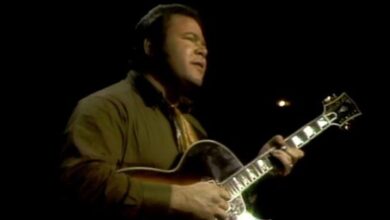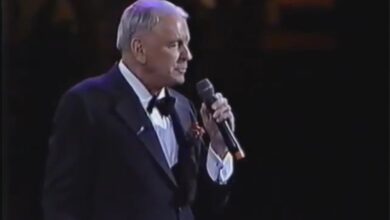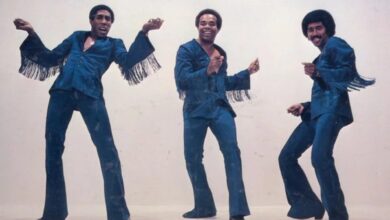Freddie Mercury passed away on November 24, 1991, prompting the remaining Queen band members and their manager, Jim Beach, to swiftly organize a tribute concert. This event aimed to honor Mercury’s memory, fund HIV research, and elevate AIDS awareness. Despite not announcing any performers besides Queen itself, all 72,000 tickets for the Wembley Arena concert on April 20, 1992, were snapped up within just three hours. The concert kicked off with performances from bands like Metallica and Guns N’ Roses.
The latter half of the show saw Queen’s surviving members perform alongside an illustrious lineup of vocalists and guitarists, including music icons such as Elton John, Roger Daltrey, Tony Iommi, Ian Hunter, James Hetfield, George Michael, Seal, Paul Young, Robert Plant, Axl Rose, Slash, and Liza Minnelli, among others. A highlight was David Bowie and Annie Lennox’s rendition of “Under Pressure,” where Lennox took on Mercury’s parts:
Annie Lennox’s interpretation of Mercury’s sections was notable for its authenticity rather than imitation. The synergy between Bowie and Lennox was both delicate and captivating, making their version of “Under Pressure” a standout moment, especially considering its significance in Queen’s discography post their 1978 album “Jazz.” Attendee Mark Scott recalled the performance as one of the most memorable rock acts, particularly praising Lennox’s ability to match Bowie’s stage presence.
“Under Pressure” has its own backstory, originating during Queen’s time in the Swiss Alps. A casual jam session among the band members was elevated when David Bowie proposed writing a song together. This collaboration led to the creation of “Under Pressure,” featuring vocals that were improvised in the studio without the artists hearing each other’s contributions until later. Here’s a glimpse into that moment:
This footage offers a peek into the rehearsals for the Freddie Mercury Tribute Concert, serving as a portal to that era with scenes of Bowie, George Michael, and other music legends. It’s a reminder to express gratitude for the music legends who’ve left an indelible mark on the world. It also brings a note of hope, acknowledging the advancements in treating HIV and AIDS, while remembering Freddie Mercury and all others who’ve succumbed to this illness.



